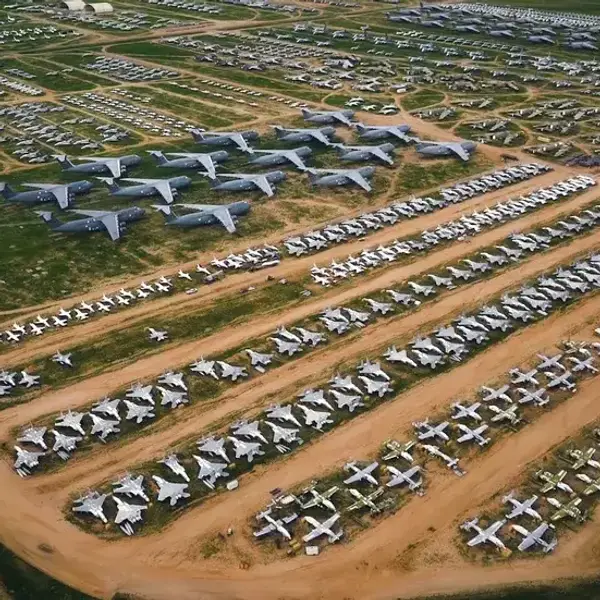If you've seen the movie "The Biggest Little Farm," you've caught a glimpse of nature's superpower in living color. It is a power that she uses quietly and faithfully. It is a power we could harness right now across Earth's 1.1 billion acres of deserted farmland to combat the escalating perils of biodiversity loss, food insecurity, and global warming. It's a power we humans continuously fail to recognize.What is it? It's nature's power of self-renewal, known in farming parlance as regeneration.
As shown in the movie which has been playing in theaters since May and is scheduled for release on Amazon and iTunes this week, Molly and John Chester harness this force on their farm, Apricot Lane in Moorpark, California. It's a vibrant place where earthworms, snails, snakes, bees, chickens, cows, ducks, dogs, pigs, hawks, gophers, hummingbirds, and even coyotes all play a role. It's a farm where, instead of continually waging war against nature, the Chesters actively foster the conditions that allow her to breathe, flourish, and regenerate.
You won't find monocultures in nature, because they suppress her palette of song, beauty, color and complexity. But for roughly the last eighty years, we've pushed farming in that direction--toward intensive productivity focused on yields of single crops. This reductionist framework is ruthlessly extinguishing the diversity of life, as is demonstrated by the precarious fate of entire species, like the Monarch butterfly.
Monocultures aren't resilient, and they are a dangerous template for the 21st centuryMonocultures aren't resilient, and they are a dangerous template for the 21st century. As you've surely been told by your grandma, or perhaps an investment advisor, it is not smart to put all your eggs in one basket. Diversification is one of the guiding philosophies at Apricot Lane, where in addition to rearing an ark of animals, they grow seventy-five different varieties of fruit, including citrus and stone fruits. This integrated and diversified approach creates resilience, so that the farm remains viable even as the weather becomes prone to wild and unpredictable fluxes.
"The Biggest Little Farm" will likely leave you inspired, hopeful even, and you'll want all your friends to see it. But the movie is much more than simply an ode to the Chesters' storybook vision and grit. The story of the triumph of Apricot Lane Farm provides us with a model that can lead our planet back to health.
How exactly did the Chesters, who had no farming background, resuscitate the parched and degraded landscape that first greeted them? Most essentially, they began by nursing their soil back to health. They composted like crazy to enhance fertility above and below ground. They planted cover crops in the neglected fields. They brought in flocks of animals to graze and fertilize the land with dung and urine. They moved these animals regularly so that the pastures received the benefit of animal impact but were not overgrazed. Let's also look at what was off the table: They did not spray poisons that kill life in the soil as well as non-target species like songbirds. They didn't till, thereby allowing soil aggregates to form and soil structures to rebuild.
By keeping their soil fed, covered, and protected, they succeeded in increasing the soil's carbon content, its water-holding capacity, and its fertility in just a few years. And once the soil was healthy, everything started falling into place. Green grasses flourished. Saplings grew into trees. Animals had babies. Ducks happily took care of the snail problem plaguing the orchard. Hawks snatched up the gophers that had been mowing down the roots of young trees. Carbon in the soil held precious groundwater despite a prolonged drought. Life on the farm became increasingly abundant and resilient.
When presented with remarkable examples like this of nature using her superpower, many people say, "That's wonderful, but it can never happen here. We have a different climate. It's hotter here. It's colder here. We have a different type of soil. We get more rain. We get less rain." They would be wrong. It is true that different crops flourish in different climates, but the principles that the Chesters followed to turn Apricot Lane Farm from an arid wasteland to a verdant paradise are straightforward and universal. The key is in building carbon-rich soil.
The real takeaway from this movie is that the miracle of self-renewal can happen anywhere, once soil-health restoration becomes the priority and the processes that allow nature to regenerate are set into motion. Many of us long to be part of that healing and to feel more connected with the rhythms of nature. We intuitively understand that bringing life to the land, as we see happen at Apricot Lane Farm, is a critical part of addressing the looming climate emergency. It's time to invite everyone to engage in solutions that teach us to be stewards. Anyone can plant a fruit tree or start a community compost project. Let's make nature's life-affirming potential central to our collective vision of the future--a future that offers hope instead of a doomsday scenario. Let's get to work to help nature unleash her super healing powers. There are 1.1 billion acres of abandoned farmland just waiting to be restored, and nature is dying to help.




